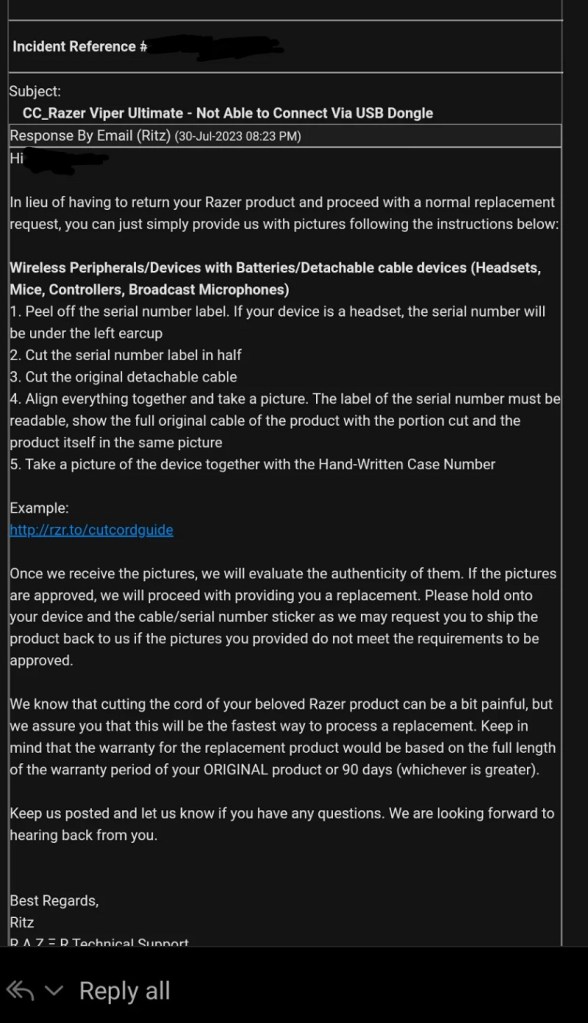A common point of conventional wisdom is don't fix what's not broken. But is there ever a time to break what's not broken? A Redditor was frustrated to find out that some companies do just that.
What's happening?
In a Reddit post, a consumer found that a company, Razer, wanted them to break a wireless mouse in order for them to make use of their warranty, going so far as to advise cutting the cable.

"My wireless mouse doesn't work wirelessly any more. Why create e-waste on purpose when the cable is still usable," said the original post, with an image of the email. "Insane considering the issue is most likely something reparable."
This post shines light on a broader issue of how companies are mishandling electronic waste, which is extremely damaging to the environment.
Why is e-waste important?
With the heavy reliance on technology these days, electronic waste is the fastest-growing type of waste globally. According to The World Counts, every year, about 50 million tons of e-waste is produced, which is equivalent to tossing out 1,000 laptops every second.
This type of waste is a significant environmental concern because it often contains nondegradable plastics, rare metals, and toxic substances. When e-waste ends up in landfills, it contributes to the production of methane, a planet-warming gas, and results in the loss of valuable materials, with an estimated worth of $7 billion in 2019 alone.
Is Razer doing anything about this?
Based on the Reddit post, Razer is not helping the situation. Instead of repairing a part, they asked the consumer to break the product even more, rendering it entirely useless.
However, Razer's own green initiatives do show that they are working toward making their products more easily recyclable. While this does not directly address the issue at hand, it is a step in the right direction.
According to Razer's website, it hopes to enable consumer disposal and recycling of Razer products through collaboration with global distributors, retailers, and e-tailers by 2025. This can reduce the amount of e-waste that goes into landfills, but given the company's warranty policy, consumers should be cautious of greenwashing.
What's being done about e-waste more broadly?
There are lots of ways to deal with e-waste, and businesses can lead the charge by stepping up recycling efforts and keeping electronics out of landfills. Programs like TerraCycle help both people and companies recycle items that are tough to dispose of, like old electronics. When we recycle e-waste the right way, it cuts down on pollution, helps recover useful materials, and even lowers disposal costs.
Join our free newsletter for good news and useful tips, and don't miss this cool list of easy ways to help yourself while helping the planet.









